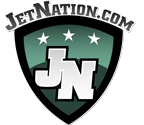Eric Mangini Press Conference – 05/12/07
 How’s everybody doing? It was a good day today, good to be back, good to be working on the field again. This year is a little bit different in terms of being able to draw on the experience from last year, being able to the review the things we did well, the things we wanted to change and then implement some of those things and see how they look on the field. It’s always great to work with the draft picks, work with the rookie free agents we’ve signed, and we have quite a few tryout guys in here as well. And I think that’s an exciting part of the process. We’ve found some really positive players through that last year. Wallace Wright, Stacy Tutt and Joe Kowalewski were all guys who came to the same camp without contracts, tried out and ended up working their way onto the roster, the practice squad and contributing. That’s a fun part of the process as well. To see the transition from college to pro football and the volume of learning these guys are going through right now, their heads are definitely spinning but they are working hard and it’s fun to be working with them.
How’s everybody doing? It was a good day today, good to be back, good to be working on the field again. This year is a little bit different in terms of being able to draw on the experience from last year, being able to the review the things we did well, the things we wanted to change and then implement some of those things and see how they look on the field. It’s always great to work with the draft picks, work with the rookie free agents we’ve signed, and we have quite a few tryout guys in here as well. And I think that’s an exciting part of the process. We’ve found some really positive players through that last year. Wallace Wright, Stacy Tutt and Joe Kowalewski were all guys who came to the same camp without contracts, tried out and ended up working their way onto the roster, the practice squad and contributing. That’s a fun part of the process as well. To see the transition from college to pro football and the volume of learning these guys are going through right now, their heads are definitely spinning but they are working hard and it’s fun to be working with them.
On bringing in former college wrestlers and basketball players for tryouts …
Being the wrestler that I was in high school, I really appreciate the sport and how difficult it is and the qualities of wrestlers in general. To be at the level they are at and have the success they are having in college, I think, is impressive. I’ve had some experience with Steve Neal in New England, where he did successfully make that transition. I think whether it be wrestlers, basketball players, track athletes, Australian Rules football players, whoever it is, if they have core characteristics, a good work ethic, intelligence, the things that we look for, then it is our job to teach them and their job to take advantage of the opportunity.
On evaluating players with no football experience …
When we were going through the process looking for tryout candidates, we obviously went through the traditional mode of guys who hadn’t been drafted and played college football, but we did look in a lot of different areas. Decathletes, wrestlers, Olympic track athletes, track athletes that had very good college careers, foreign players, basketball players — pretty much anything we could think of where there may be transferrable athletic characteristics. And there had been a track record of success in that area. Then we thought we would bring them in and see whether or not we could make the transition or their intent on making the transition.
On whether or not he thought about bringing in some boxers …
No, I didn’t. I probably should have talked to Teddy [Atlas] about that.
On Chansi Stuckey …
As he comes further along, I think as an athlete, you are going to regain some of the things you had before the injury. He’s doing a lot of work and I’ve been pleased with, I really like his enthusiasm in the classroom. He’s got a very good personality. He’s bright and he is working hard. I’m pleased with all of those things.
On the rookies’ transition to the pro game …
It’s hard to tell. There’s a lot of guys who seemed lost to me today. I think everybody is at different points of being lost and we talked about this last year, where you come from a familiar environment with guys you played with for a long time, you’re comfortable there, and suddenly, new coaches, new players, new uniforms, new city, so many things being thrown at you in terms of terminology, playbook, philosophy, player programs. Just the volume of information that is coming in, in addition to the whole changing of environment, takes time to transition to.
On Darrelle Revis …
I’ve been pleased with the work ethic. It’s the same as what I expected in talking to him and talking to people who knew him in doing our research. I think he’s working well in the classroom, he did some nice things in the tackling drill. Not just the one-on-one deal where you’re evaluating but also their group punt coverage drill that we had set up there with the bags, seeing him as both a coverage guy and a runner there. And then seeing his strength that we talked about at the line of scrimmage and all of the other characteristics. I have been pleased, though again it’s going to take some time for him to get used to the system, like all of these guys, so they can think less and react more.
On whether he was surprised Chansi Stuckey fell to the seventh round …
I think with the draft, you never know where someone is going to go or how people view them, how injuries or anything that happens throughout the process is going to affect them. You see that all the time during the draft weekend, where guys don’t go where maybe they were perceived they should go or it was thought where they would go. There’s no consistent pattern, I think.
On the greatest lesson he learned in his first year as a head coach …
I don’t think I can summarize it into one lesson. I just feel that I believe even more strongly in the core characteristics of the players we are looking for, in the core values we have. Those things to me are constantly reinforced, whether you’re a DB coach, a defensive coordinator, a head coach.
On David Harris …
I really liked his inherent leadership, his presence. I thought he was very fluid in the passing game, the 7-on-7 and things like that. Today, this is always tougher to evaluate in the run because of no contact. I thought the fits overall were good. The person we researched is the person that’s here.
On evaluating rookies during minicamp …
We tell them the same thing: be on time, pay attention, work hard, know what to do, do you know what to do, are you doing the things you are being coached to do, and being the same player every day. Those are easy rules and that’s the simple evaluation. We talk about the core characteristics: smart, tough, hard-working, competitive, selfless, guys that football is important to. And the core values: communication, focus, finish and trust. That’s part of my first message to the players. That will be an ongoing message throughout the year. I want to see those things. I want to see them understand those things. That’s from that side. And then you are looking for the evaluation throughout. How are they on the field? How are they in the classroom? How are they in the weight room? How are they in rehab? How are they in the player programs? What’s their body of work?
On the status of Pete Kendall …
Pete’s situation is unchanged
On Kendall’s participation in the off-season workout program …
He participated early. He hasn’t been of late.
On the importance of off-season workouts …
Organizationally and personally, we really believe in the importance of the off-season program. I like the way we are developing that area each year, not just in the weight room and with the running, but with the extra programs. I like that they are all able to work out together, they are able to push each other in a positive way, they are able to do things together. Being in New York, they are able to work together on any number of things. It could be that they want to get together and do some things on the field if they wanted to, together. They have the availability because of proximity. So’ it is something that we believe in fundamentally and believe that it helps with progress. I learned that with Coach [Bill] Parcells and Bill [Belichick]. I’ve seen it work.
On participating in off-season workouts …
It’s not mandatory and it’s a voluntary program, but it is something that has real value.
On whether he’s displeased Kendall is not participating now …
It’s one of those things where I think it is positive to be here, I really do. Pete’s a professional. He has done a lot of good things and he was very instrumental in helping Nick [Mangold] and D’Brickashaw [Ferguson] develop last year. I really respect the things he’s done.
On sacrificing meals for D’Brickashaw Ferguson …
I’ve been trying to stay away from lunch personally, but he can have mine. It’s successful. I’ve gained a lot of weight with the program that I’ve been on. I can vouch for it. Julie has been very helpful there. She’s a pretty good cook and I’ve been helping along. I’ve been keeping with this weight-gain program for its strengths.
On Ferguson’s weight …
We don’t weigh the guys. It’s not like LA Weight loss where you get on a scale every three days, but part of the off-season program is getting bigger and stronger and there’s a natural progression of weight gain as we gain strength. Brick has worked very hard this off-season. I’ve been impressed with not just the things he’s doing in the context of the program, but the things he’s doing outside of that, some extra work on football skills, some extra work in the classroom. He’s really maturing and coming into his own as a professional. He’s always had those characteristics, but as you learn and grow and go through the process, you find things that work for you, and he is definitely exploring that and doing a lot of positive things.
On player participation in off-season workouts …
We have some other guys who are not as far a long as the group, but like I said, it is a voluntary situation and we have a certain guideline of what we are looking for out of it. There is a certain timeline where guys can make up days. It’s an extensive program, so it’s something that we evaluate more towards the end once all of the days are worked through.
On Oklahoma QB-WR Paul Thompson not being at practices …
It was a situation where contractually it just didn’t work out. We moved on and he moved on and we wish him all the luck.
On how tryout players can impress the staff …
Part of this process when you have as many guys as we have trying out is getting to know them, and the best way they can help themselves is to flash it on the screen or flash it in the classroom. We are one day into it, so there has been some blinking lights but we’re looking for the flash and this is what these guys are working for.
On Revis’ development …
Darrelle needs to watch Darrelle, that is who he needs to watch, and just absorb the volume of information that’s coming in before he gets into the next layer of studying. We are working on “101” in here and I think he needs to pass that course and work on that before we get to the advanced studies.
On evaluating wrestlers turned football players …
It’s so hard to tell. It’s so early. We’ve got some time to go and you measure things differently when guys haven’t been exposed. The way you measure progress is going to be in smaller increments. And really, you are looking for potential and progress and consistent progress. It’s such a largely different experience, the first time you are getting into a stance or putting a helmet on or any of those things. It’s all new. They had their helmets on right, that’s a plus.
On when decisions will be made regarding tryout players …
Those decisions are ongoing and there are guys who will come and go throughout the weekend. Then we will evaluate it at the end of the camp and make a decision at that point.
Videos
Several Jets Earn Praise on Day 2 of Rookie Minicamp









